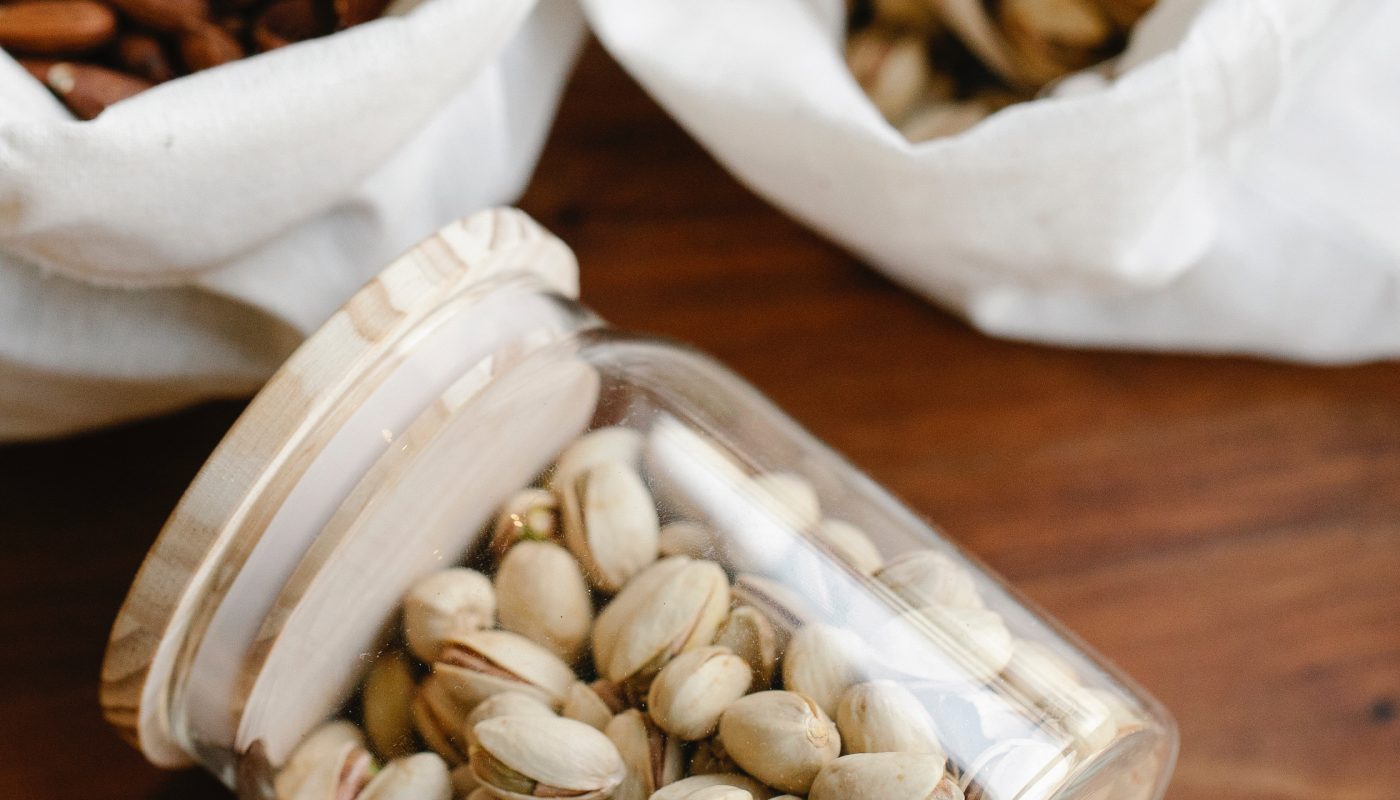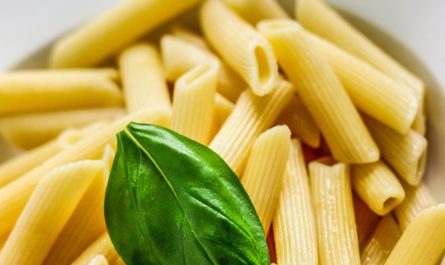All aboard the plant train! As we chug along into a new year, interest in plant-based protein shows no signs of slowing down.
According to the International Food Information Council’s 2022 Food and Health Survey, 12 percent of Americans now follow a plant-based diet and 31 percent say they’ve been eating more food from whole-plant sources.
Meanwhile, there’s no shortage of novel plant-forward protein sources to choose from, with new powders, milks, and meat substitutes emerging every month. And, of course, old standbys like beans, quinoa, and tofu are always available to add animal-free protein to your diet too.
Considering leaning more on plants to fill you up, build your muscles, and even help you lose weight?
Here’s an overview of the latest science behind plant-based proteins, when to use them, and why they make a difference to the environment and your health.
How plant-based proteins compare
| Plant-based protein | Serving size | Calories | Protein | Fat | Carbohydrates | Fiber | Sodium |
| Black beans,Trusted Sourcecanned, without saltTrusted Source | ½ c. | 114 | 7.5 g | 0.5 g | 20 g | 15 g | 0.5 mg |
| Tofu (extra-firm)Trusted Source | 3.5 oz. | 94 | 10.6 g | 4.7 g | 3.5 g | 1.2 g | 18 mg |
| Chickpeas, canned, low sodiumTrusted Source | ½ c. | 105 | 6 g | 2.3 g | 16.2 g | 5.3 g | 158 mg |
| EdamameTrusted Source | ½ c. | 94 | 9.2 g | 4 g | 7 g | 4 g | 4 mg |
| Peanut butter (smooth, no salt)Trusted Source | 2 Tbsp. | 191 | 7.1 g | 16.4 g | 7.1 g | 1.4 g | 5 mg |
| Quinoa (cooked)Trusted Source | 1 c. | 222 | 8.1 g | 3.5 g | 39.4 g | 5.1 g | 13 mg |
| OatsTrusted Source | ½ c. | 153 | 5.3 g | 2.5 g | 25 g | 4 g | 3 mg |
| LentilsTrusted Source | ½ c. | 115 | 9 g | 0.4 g | 20 g | 8 g | 2 mg |
| Vital wheat gluten (seitan)Trusted Source | ¼ c. | 104 | 21 g | 0.5 g | 4 g | 0.2 g | 10 mg |
| Pea protein powderTrusted Source | 1 scoop (22 g) | 100 | 19 g | 2 g | 1 g | 0 g | 260 mg |
The science behind plant-based protein
When comparing plant-based protein to animal protein, there are plenty of factors to consider, from taste to cost. But if you’re turning to plants for a health purpose, it’s helpful to look at the science behind their benefits.
Is it as good as animal protein for health?
Vegetarians (and their well-meaning mothers) have long been concerned about obtaining so-called “complete” protein from plant sources.
Many vegan proteins don’t contain all the essential amino acids, leading some people to believe that they must mix and match their menu to create the right balance. A common example is combining rice and beans.
However, many experts now say that pairing specific vegetarian foods for their amino acids probably isn’t necessary. A well-balanced diet is likely to supply sufficient amounts of all 20 amino acids, both essential and non-essential.
In fact, a 2019 studyTrusted Source on people following vegan and vegetarian diets found that they received more-than-adequate protein and amino acids. The authors of the study also went so far as to say that the concept of amino acid deficiency has been “substantially overstated.”
Vitamin B12
Still, there is one nutrient where plant-based proteins can’t compete with their animal counterparts: vitamin B12, responsible for proper brain function and red blood cell formation. If you choose to go totally vegan, you’ll likely need to add this nutrient to your diet with a supplement.
Are there adverse health effects?
Opting for plant proteins over animal ones is likely to produce positive health effects. Studies have associated plant-based diets with healthy weight maintenanceTrusted Source, lower risk of type 2 diabetesTrusted Source, and even longer life.
Still, there are a few caveats.
Processed foods
Some plant-based protein foods (like plant-based meats and cheeses) are highly processed, which could come with some unpleasant surprises for health.
“Depending on the type, the sodium and saturated fat content (components many of us may want to reduce) could be comparable or even higher than meat,” says Christine Milmine, RDN, founder of Plant Powered You. “However, the opposite may be true as well, so check the nutrition facts panel.”
Plant-based dietitian Amy Gorin, MS, RDN, owner of Plant-Based with Amy, agrees that it’s best to limit ultra-processed plant-based convenience foods.
“Options such as plant-based meat are delicious and keep things interesting, but these are a food I recommend eating in moderation and not with every meal,” she says.
Food sensitivities
People with allergies to soy or nuts (two of the eight most common food allergens) may also find a diet high in plant-based protein tricky to follow. And folks with digestive issues like irritable bowel syndrome may need to be careful with the higher fiber content of many plant-based foods.
Soy side effects?
Another concern that requires clarifying: the health effects of soy. For years, soy foods have been plagued by rumors that they alter hormone balance or even cause cancer.
Fortunately, current research shows that there’s little reason for concern around including a tofu-packed stir-fry or steamed edamame at dinner.
A 2020 studyTrusted Source that tracked over 300,000 women revealed that eating soy foods actually reduced their chances of developing breast cancer. Meanwhile, the American Cancer SocietyTrusted Source contends that soy foods are both healthy and safe.
The environmental benefits of plant-based protein
Eating more plant-based proteins not only nourishes your body, it can help restore the planet!
Carbon emissions
A 2019 studyTrusted Source showed that shifting from an omnivore diet to veganism reduced personal greenhouse gas emissions by 50 percent, while moving to a lacto-ovo-vegetarian eating pattern brought them down by 35 percent.
Water conservation
Water usage is another key area where plant proteins outshine animal ones.
According to data from the Water Footprint Network, an advocacy group devoted to solving the world’s water crisis, meats like beef, poultry, and pork use significantly more water than plant-based proteins like pulses, nuts, and cereal grains.
The water footprint of beef, for example, is six times higher than that of pulses.
U.N. supported
The environmental effects of scaling back meat consumption are so noteworthy that the U.N.’s 2019 climate change report called for a global reduction of animal proteinTrusted Source
Even if you don’t elect to go fully plant-based with your protein consumption, you might consider making some smaller tweaks to promote planetary health.
Frequently asked questions
Have more questions about plant-based protein? Get the facts below.
What are the best plant-based protein sources?
The best plant-based foods are those that provide not only ample protein, but other benefits too.
For starters, you can’t go wrong with beans. “Beans are unique in that they contain fiber, whereas animal protein does not,” Milmine points out. “Dietary fiber has been associated with many benefitsTrusted Source such as digestive health and reducing the risk of certain conditions.”
Gorin recommends tofu. “I love tofu because it’s so versatile. It picks up the flavor of whatever it’s cooked with,” she says.
Plus, tofu may not be as allergenic as was once believed.
“You might be worried that soybeans are one of the top major food allergens, but soybean allergies are actually less common than you might think,” she says. “A study in Nutrition Today shows that the prevalence of soybean allergies is lower than the prevalence of the other top seven allergens that include milk, eggs, fish, crustacean shellfish, tree nuts, peanuts, and wheat.”
Nuts make another excellent plant protein choice for their convenience and versatility (not to mention their crunch!).
Gorin, who is a nutrition partner with Wonderful Pistachios, encourages incorporating the bite-sized green nuts in meals and snacks. “Pistachios offer 6 grams of protein per quarter-cup serving. They’re one of the highest-protein snack nuts out there.”
Who shouldn’t eat plant-based protein?
Anyone can (and should!) enjoy whole, plant-based foods in a balanced diet. But some people will need to exercise caution around certain plant foods.
Those on a reduced-sodium or reduced-fat diet will need to check labels on highly processed plant-based foods like faux burgers, bacon, and cheeses.
Similarly, if you have an allergy to plant foods like nuts or soy, be sure to read ingredient lists to avoid these elements. And if excess fiber is a concern, choose your plant-based protein sources wisely. Soy milk and tofu, for example, provide plenty of protein with minimal fiber.
How does plant-based protein powder compare to whey powder?
The merits of plant-based protein powder versus whey powder are hotly debated in the nutrition world. Both powders help build muscle and support weight loss, but plant-based options don’t always feature complete proteins and may not contain as many grams per scoop.
On the other hand, some people find plant-based powders easier to digest because they don’t contain lactose. If you’re vegan, you’ll also want to steer clear of whey powder, since it’s derived from cow’s milk.
What’s the best-tasting plant-based protein powder?
Flavor preferences may vary, but judging by online reviews, certain protein powders are the tastiest cream of the plant-based crop.
Orgain’s Organic Superfood Powder in vanilla bean flavor has over 40,000 Amazon reviews, 77 percent of them five-star.
Numerous other flavors, from chocolate to strawberries and cream, are available from thousands of brands. With some personal taste testing, you’re likely to find a powder that suits your taste buds.
Where can I find plant-based protein recipes?
Want to incorporate more plants into your meals and snacks? The internet is teeming with ideas, but we’ll start you off!
Begin your day with a chocolate banana breakfast quinoa or a tofu scramble to keep you satisfied all morning long.
Then, at lunch, barbecue chickpea wraps or simple broccoli-peanut noodles make flavorful high-protein meals.
And for dinner, try this easy black bean and spinach enchilada casserole, a seitan piccata, or a veggie-packed lentil soup.
Takeaway
Whether you prefer tofu, beans, nuts, or a combination of all of the above, plant-based proteins have so much to offer. They’re usually inexpensive, packed with nutrients, and come in a delicious palette of flavors.
With all the environmental and personal benefits of these vegetarian macros — and with myths about their inferior stature debunked — there’s little to keep you from making friends with plants.




